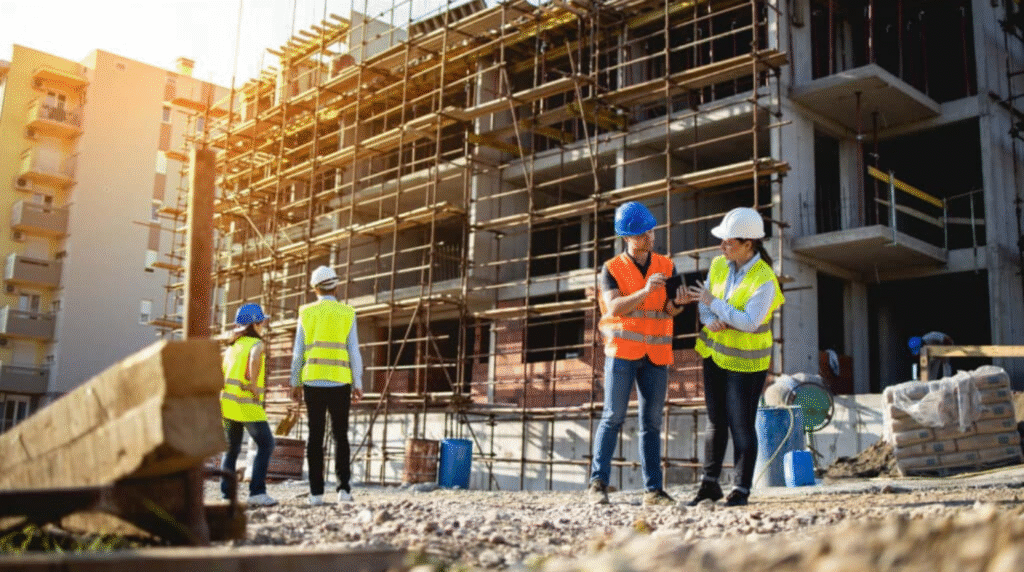Building a home is one of the biggest financial decisions many people will ever make. Unlike buying an existing property, constructing a house allows you to customize every detail—from the floor plan to the materials used. However, one of the most common questions people have is: How much does it cost to build a house? The answer depends on many factors, including location, size, design, labor, and materials.
In this article, we’ll break down the key cost components of building a home, give you an idea of average pricing, and explain how services like construction takeoff services can help you estimate expenses more accurately before starting your project.
Average Cost to Build a House
The cost of building a home can vary significantly depending on your region and the choices you make. In general, building a new house in the United States costs anywhere between $150,000 to $500,000 or more. On average, the national cost per square foot ranges between $120 to $250.
For instance:
-
A 1,500 sq. ft. home may cost around $180,000 – $375,000.
-
A 2,500 sq. ft. home may cost around $300,000 – $625,000.
These are general ranges; luxury homes, custom designs, and houses in high-demand cities can cost far more.
Major Factors Affecting Home Building Costs
-
Location
Building costs vary by state, city, and even neighborhood. Urban areas with high land prices and labor demand will naturally cost more compared to rural areas. -
Size of the House
The bigger the home, the more materials and labor are required. While larger homes usually have a lower cost per square foot, the total cost is still much higher. -
Type of Materials
The choice between basic, mid-range, and luxury materials dramatically affects the budget. For example, granite countertops, hardwood flooring, and premium roofing will significantly raise your costs compared to standard materials. -
Design and Layout
Custom floor plans with unique shapes, open spaces, and specialty rooms (like gyms or theaters) often require more labor and specialized construction methods. -
Labor Costs
Skilled labor makes up 30–50% of construction costs. Hiring qualified contractors ensures quality but may increase overall expenses. -
Permits and Inspections
Before construction begins, you’ll need to obtain building permits, which can cost anywhere from a few hundred to several thousand dollars depending on the local regulations.
Hidden Costs You Should Consider
Many homeowners forget to account for additional expenses beyond the construction itself:
-
Land purchase and preparation (grading, clearing, excavation).
-
Utility connections (water, sewer, gas, and electricity).
-
Landscaping (driveways, lawns, fencing).
-
Interior finishes (paint, fixtures, cabinets, appliances).
-
Unexpected delays or design changes that increase labor and material use.
Having an accurate estimate upfront can help you avoid being caught off guard. This is where construction takeoff services play a critical role, ensuring you understand the materials, labor, and cost requirements in detail before committing to the project.
Tips to Save Money When Building a House
-
Plan Your Budget Early – Set a realistic budget before starting and stick to it.
-
Simplify the Design – A simple, square or rectangular layout is usually cheaper to build.
-
Choose Cost-Effective Materials – Opt for durable but affordable materials to balance quality and price.
-
Hire Reputable Contractors – While you may be tempted to hire the cheapest option, experienced builders can help you avoid costly mistakes.
-
Use Construction Takeoff Services – These services provide detailed cost breakdowns that can prevent overspending.
Conclusion
The cost of building a house depends on numerous factors such as location, design, materials, and labor. While the average range in the U.S. sits between $150,000 and $500,000, your unique preferences and local conditions can push the figure higher or lower. To avoid surprises, it’s best to plan thoroughly, account for hidden costs, and use tools like construction takeoff services for accurate budgeting.
Building your dream home is an exciting journey, and the more informed you are, the smoother the process will be.


